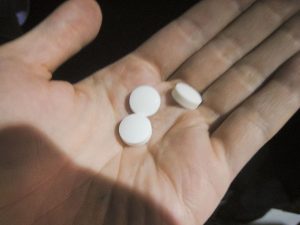
Mild hypoglycemia: sweating, nervousness, tremors, fainting, palpitations and hunger
Severe hypoglycaemia: dizziness, weakness, headache, fatigue.
Not able to concentrate, mental confusion, blurred vision, seizures, slurred speech and coma.
In most cases, symptoms of hypoglycemia only appear if blood glucose levels drop less than 70mg / dL (3.6 mmol / L). Few people are symptomatic at narrowly higher values, particularly when blood glucose levels fall rapidly, while others only experience symptoms when blood glucose levels are extremely low. The body’s initial response to hypoglycemia is the release of adrenaline from the adrenal glands. Adrenaline is a hormone that stimulates the release of glucose from body reserves, but simultaneously causes symptoms similar to those of a panic attack: sweating, nervousness, tremors, fainting, palpitations, and hunger Voorstadium diabetes type 2 symptomen.
More severe hypoglycemia reduces glucose supply to the brain, resulting in dizziness, fatigue, weakness, headache, inability to concentrate, confusion, inconsistent behavior, which may be mistaken for drunkenness, difficulty articulating words, blurring vision, seizures and coma. A prolonged and severe state of hypoglycemia results in permanent brain damage.

Symptoms can begin gradually or suddenly, progressing from mild discomfort to severe mental confusion or panic within minutes. Sometimes, people with diabetes for many years (especially if they have had frequent episodes of hypoglycemia) do not have the ability to recognize the first symptoms of hypoglycemia and may experience fainting or coma without further warning.
In the case of an insulinoma, symptoms are more likely in the early morning after an overnight fast, especially if the body’s blood glucose stores are further reduced by physical activity before breakfast. Initially, these subjects present only sporadic episodes of hypoglycemia but, in the following months or years, these episodes become increasingly frequent and severe.
Hypoglycemia Diagnosis
Blood tests to measure glucose levels
In a person known to be diabetic, doctors should suspect hypoglycemia if symptoms are reported. The diagnosis is confirmed when low blood glucose values are detected during the crisis. In a healthy person who does not have diabetes, doctors can usually recognize hypoglycemia based on symptoms, history, physical examination, and common laboratory tests.
First, the blood glucose level is measured. In a non-diabetic subject, with typical symptoms of hypoglycemia, the detection of reduced glucose levels confirms the diagnosis, especially if the correlation between the appearance of symptoms and low blood glucose levels is repeatedly demonstrated. If symptoms go away with rising blood glucose levels within minutes of ingesting sugar, the diagnosis is confirmed.





